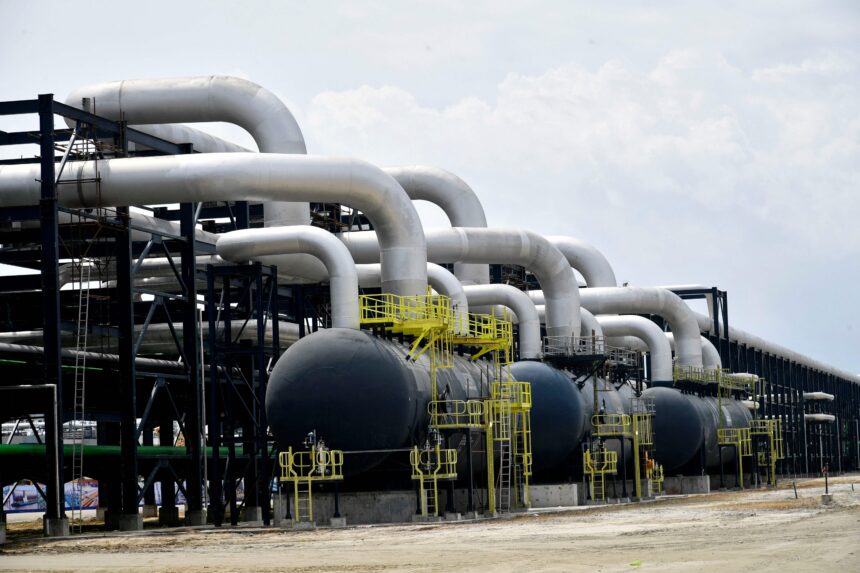LAGOS – Nigeria’s Dangote refinery, Africa’s largest, has finally started producing petrol.
The petrol is expected to hit the market in the next 48 hours, a game-changer for the oil-rich country that frequently faces gasoline shortages.
The oft-delayed 650 000-barrel-a-day refinery built by Nigerian billionaire Aliko Dangote began producing diesel and aviation fuel in January, but the OPEC member has had to rely on costly gasoline imports to keep cars running because of a lack of refineries.
Dangote told Channels News that pricing was being finalised by the government cabinet and state-run Nigerian National Petroleum Corporation (NNPC).
“Once we are finished with NNPC, it could be today, it could be tomorrow, then we are ready to roll into the market,” he said.
A spokesman for NNPC did not immediately return calls seeking details on the fuel supplies. Nigeria swaps crude worth billions of dollars for petrol that it subsidised for years to maintain low domestic prices.
Fuel imports and subsidies have caused a massive drain on foreign exchange reserves at a time when Nigeria is struggling with dwindling oil revenues and foreign currency shortages.
The refinery, first scheduled to open in 2021, was officially inaugurated by the then-president Muhammadu Buhari last year.
Since coming to office in May last year, president Bola Ahmed Tinubu has ended long-standing fuel subsidies and floated the naira currency in economic reforms he said will attract foreign investment and build long-term growth. But in the short term, fuel prices have doubled, inflation hit a three-decade high of 34% in June, and the naira has collapsed against the dollar, adding to price pressures on imported goods.
The economic capital Lagos has seen
weeks of sporadic long lines outside filling stations due to fuel shortages.
The state-run energy company raised petrol prices from 568 naira (US$0.36) a litre to at least 855 naira on Tuesday.
Private operators often have shorter lines because they sell at higher prices.
The energy company this week said financial strain had hampered its ability to sustain fuel supplies, even after it declared a record profit last month of 3.3 trillion naira or US$2 billion.
–Nampa/AFP


